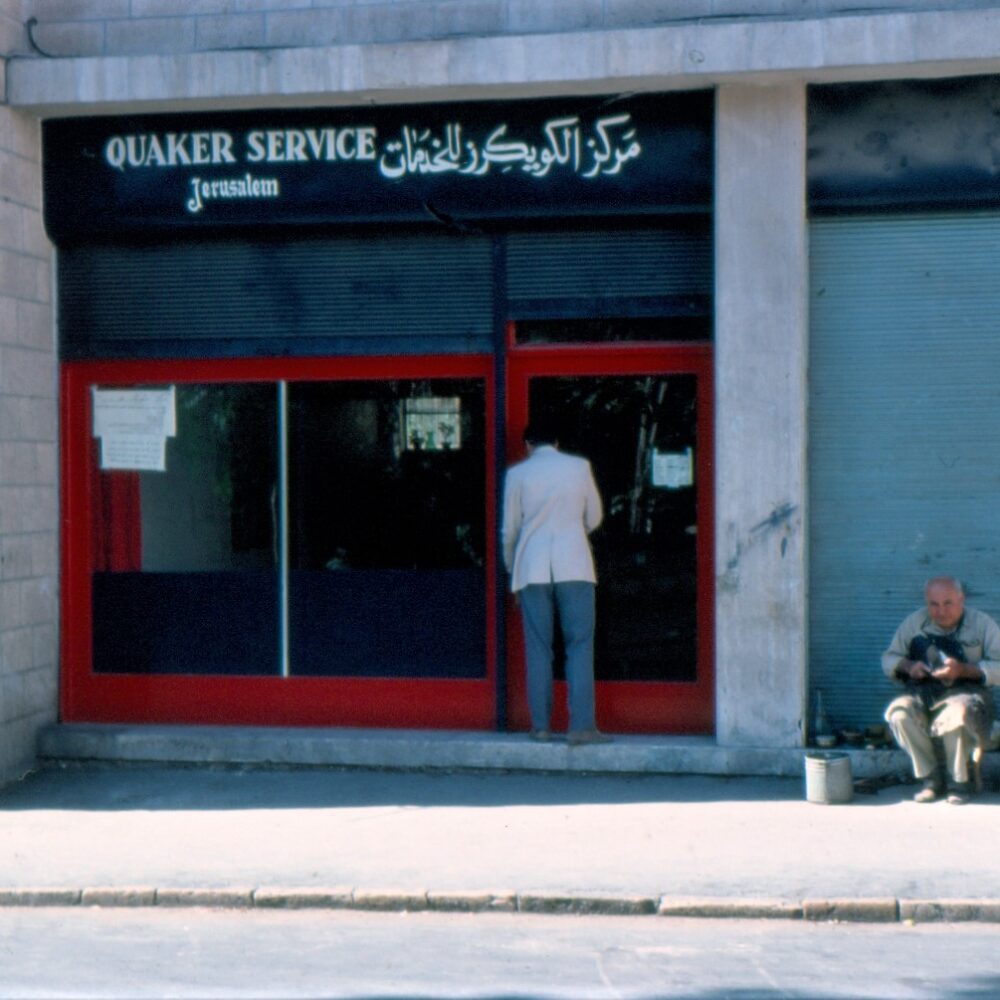
Israeli and Palestinian lawyers for the office handle cases of hundreds of Palestinian political and security detainees and landmark challenges to Israeli land seizures to build civilian settlements in the occupied West Bank. The office is devolved to a Palestinian organization in 1997 as the Jerusalem Legal Aid Center.
The idea for a community information and legal aid office is suggested by an Israeli-Palestinian social worker who is prominent in the struggle by legal and other non-violent means for equality of Arabs and Jews inside Israel. The idea is also approved by the Israeli deputy mayor of Jerusalem, Meron Benvenisti. The office is intended to provide Palestinians subject to Israeli law since Israel’s annexation of East Jerusalem in 1967, as well as West Bank and Gaza Palestinians subject to military government law, with information about their rights and available resources. The office advises and provides legal representation to clients on a variety of social welfare, landlord-tenant, and personal status issues, but the overwhelming demand quickly becomes for legal representation in cases where Palestinians are arrested for membership in the groups that form the Palestine Liberation Organization, then illegal under Israeli and military government law, and in some cases for violent actions carried out by the groups. The legal aid office turns to Israeli and Palestinian lawyers already handling such cases and aids with legal fees based on a family’s means.
Palestinian clients also come to the Legal Aid Office for help with evictions and land seizures carried out by the occupation authorities to further Israeli settlement construction. These requests lead to several landmark appeals to the Israeli High Court of Justice. In most cases the Court allows settlement action to proceed, but ostensibly only on a “temporary” basis consistent with the needs of the occupying Israeli Army.
In the case of the settlement of Elon Moreh, however, with testimony on behalf of the Palestinian plaintiffs by a former Israeli Army Chief of Staff and disclosure of Israeli cabinet discussions documenting unlawful reasons for seizing the land, the Court orders the settlement to be removed and the land returned to the Palestinian landowners. The Israeli government balks at implementing the Court’s order but eventually complies and re-establishes Elon Moreh on a nearby site.
The high-profile land cases of the Legal Aid Office lead to an attempt by the Israeli Ministry of Social Affairs, which supervises international NGOs, to close the office. Influential Israeli allies come to the aid of the office, however, and the Ministry reverses course and declares that the office can remain open.
In 1995 a Palestinian board of directors is formed to take over the Legal Aid Office and the office becomes fully independent as the Jerusalem Legal Aid Center in 1997. It continues to the present with offices in Jerusalem, Ramallah, Nablus, and Salfeet.